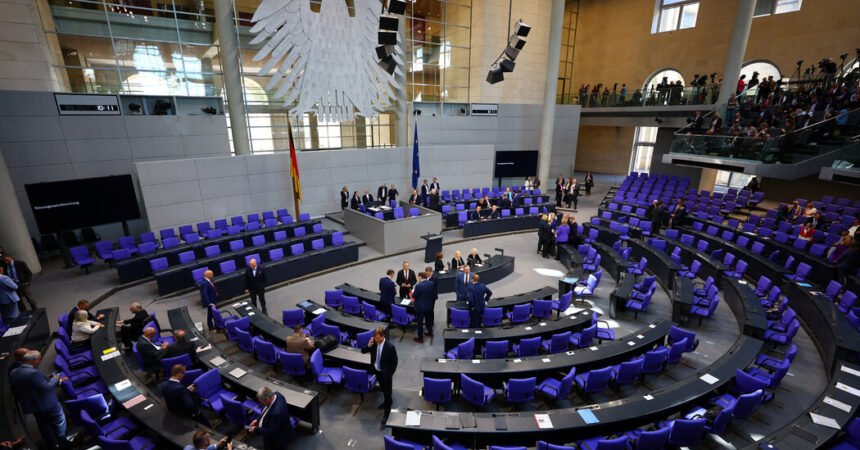Friedrich Merz was about to oath as the tenth chancellor of Germany on Tuesday morning, but he could not win enough votes in Parliament, which is usually simply a symbolic step. In a secret vote, I only had six votes of a majority of 316 votes.
Parliament now has two weeks to try to gather support to make Mr. Merz or other candidate chancellor in a second vote. There is no limit in the number of votes that can take place. It was not clear immediately if legislators would try another vote on Tuesday or wait.
If Mr. Merz cannot ensure a majority in a subsequent votes, the process enters a third phase in which legislators can select a new chancellor using the relative majority. This means that more than one candidate would be forward and the one with the most votes, not necessarily a majority, would win. Since Mr. Merz’s Christian Democrats have the greatest amount of seats, he or someone else in that party would probably win.
But if a chancellor is chosen using only a relative majority, the president of Germany, who usual plays a symbolic role, could decide to ask for new elections.
This was the first time that a possible chancellor could not ensure a majority in Parliament in the 76 years of the German Republic, and the transfer of power now stops. The ministers cannot be appointed or jurors, which means that Olaf Scholz and their cabinet will remain in a caretaker government until things are resolved.
For Mr. Merz, even if it is possible to vote, the reputation damage to him could be severe.







